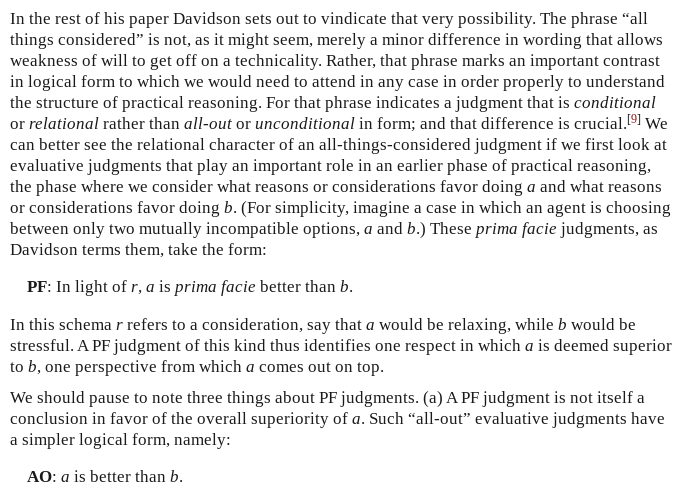Suppose that there is an epistemic capacity useful to call by the name of understanding, as something on the same level as knowledge in general, but importantly distinct therefrom. Now suppose that one can know what is good without knowing why something is good, or know why things would be good without knowing what, in particular, answers to such a "why." That is, there are those who know not "what the situation calls for," who are weak-minded when it comes to "reading the room." (Kant mentions such an intellectual distinction when he speaks of wit, I think; he says something about people who have a good stock of correct principles in their heads, but who are relatively lost when it comes to the art of applying general rules to local cases.)
So instead of mere knowledge being sufficient to block akrasia, we instead have it that one would have to fully know and fully understand what is right or wrong, good or evil, in order to avoid falling prey to weakness-of-the-will? Can this picture of the matter be adapted to e.g. Donald Davidson's all-things-considered/all-out distinction in his theory of practical judgment? To quote some writing on that:
On the other hand, the above makes Davidson's distinction sound more like a difference internal to understanding, rather than an equivalent of the knowledge/understanding difference itself. I.e., it seems as if the person who goes so far as to judge something all-things-considered, but fails to move to all-out judgment, is deficient in understanding specifically.
Corollary: acedia can be represented as some sort of reciprocal of akrasia. One involves knowing what is wrong but acting wrongly, the other involves knowing what more would be good to bring about but not acting to bring about more good. So if we have both the knowledge/understanding and ATC/AO distinctions in play, here, are these such as to help explain only akrasia, or akrasia and acedia together?

